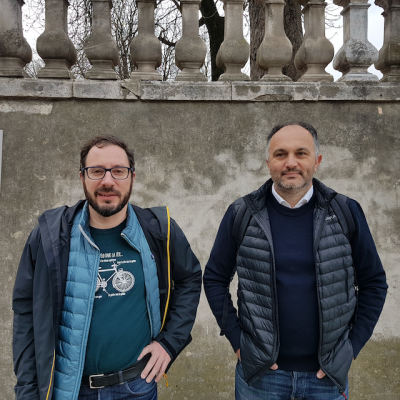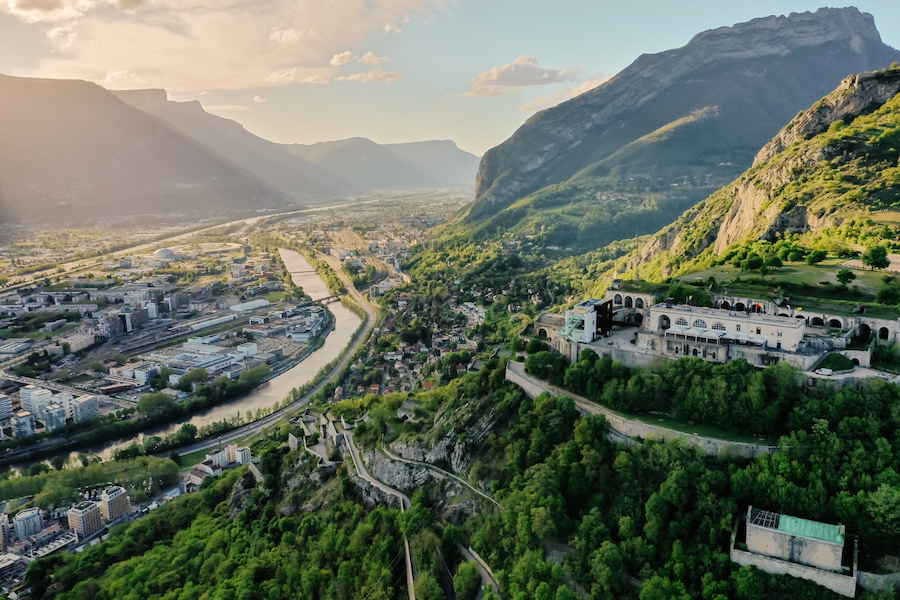Transition: prospective scenarios and action plans
There is an urgent need to organize the ecological transition. If the time has come for national prospective scenarios, the metropolises have a major role to play in this undertaking and are doing their utmost to do so, in particular to adapt their own mode of operation or to bring about behavioural changes.

We are happy to have hosted this meeting around the challenges of climate change. This theme was particularly important in this year 2022 when Grenoble has been chosen by Europe to be its green capital.
After integrating the observation of the Anthropocene, we find ourselves today in a sort of “springtime of foresight”, as shown by the various transition scenarios, recently published by ADEME and The Shift Project, which were presented to us.
These foresight and planning exercises, respectively, help us measure the challenges and, above all, the arduous path ahead of us. In particular, the adaptation of the economy to the challenges demonstrated by science is beginning to reveal its immense complexity. This is what we retain from the rather incisive intervention of the economist Christian de Perthuis. Grenoble is particularly attentive to this because the eco-systemic functioning of scientific research, business innovation and territorial dynamism are in the DNA of the metropolis.
It is clear that these challenges also concern our organizations very concretely and, in this respect, the example of Schneider Electric, all things considered, inspires us. That of Lyon also, because it opens up a vast field of reflection and raises the still uncertain question of actions capable of changing behaviour.
Emmanuel Rouède
Chief executive of the City of Grenoble
Jean-François Curci
Chief executive of Grenoble Métropole
PROGRAM
Findings and prospective scenarios
Beyond climate change, local authorities face the challenges of global change
> Thierry LEBEL, director of research at the Institute of Environmental Geosciences and member of the French National Committee on Global Change
Transform society, yes, but to go where?
Transition(s) 2050: ADEME’s four scenarios
> Jean-Louis BERGEY, Prospective, energy and resources project manager – Transition(s) 2050 at ADEME
Managing the transformation of territories so as not to suffer from it
The Shift Project’s French Economic Transformation Plan
> Corentin RIET, regional resilience project manager at The Shift Project
Climate neutrality: what implications?
Economic implications of energy and agro-ecological transitions
> Christian de PERTHUIS, professor of economics at Paris Dauphine University, founder of the Economics and Climate Chair, former director of the Climate mission of the Caisse des dépôts and former chairman of the committee for ecological taxation
Action plans
The challenges of Grenoble European Green Capital
> Guillaume THIERIOT, director of the public interest group Capitale verte
Foresight at the service of the changes to be made
Changing lifestyles: a new possible mission for local public action?
> Pierre HOUSSAIS, Prospective and Public Dialogue Director, Grand Lyon la Métropole
Free public transport: a radical change in mobility policy?
> Olivier NYS, CEO of Montpellier Méditerranée Métropole and the city of Montpellier
Grenoble : managerial challenges in a city in transition
How the city of Grenoble intends to overhaul the functioning of its administration to carry out its transition project
> Emmanuel ROUÈDE, CEO of the city of Grenoble
The exemplary administration plan
How Grenoble Alpes Métropole and its agents organize them-selves to reduce the institution’s ecological footprint
> Jean-François CURCI, CEO of Grenoble Alpes Métropole
Schneider Electric’s CSR policy
The action plan of a large com-pany, a source of inspiration for local authorities?
> Gilles VERMOT-DESROCHES, director of sustainable development at Schneider Electric
Photo Mikhail Nilov
Creative Commons Attribution-Share Alike 4.0 International license.

